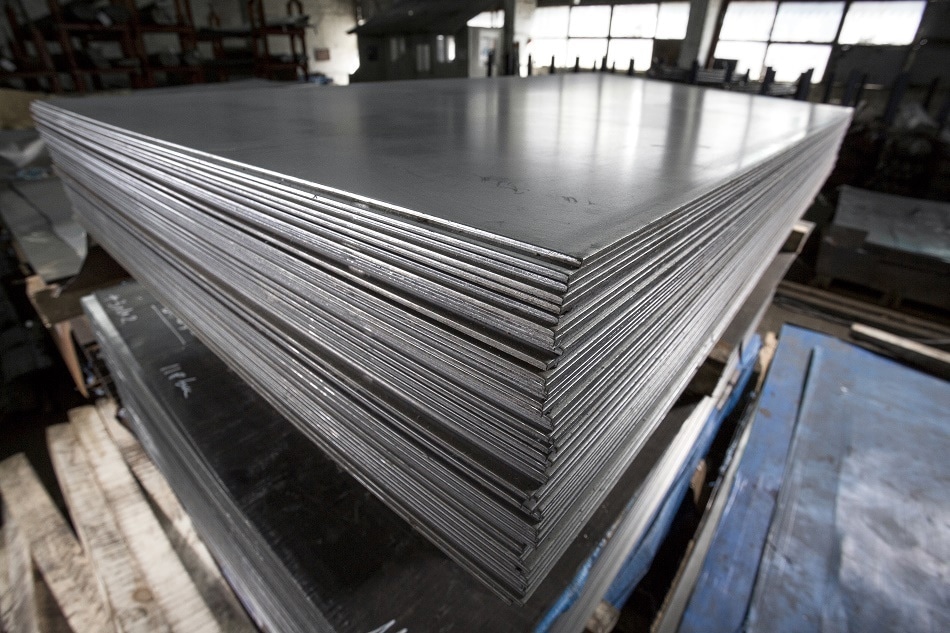Hardness, durability and strength are among the top vital mechanical values for industrial steel products, determining the physical integrity of a product when subjected to applied forces. The majority of steel alloys are innately strong with good resistance to mechanical deformation, but products that occasionally or routinely experience scuffing or impacts have to be manufactured from alloys with improved hardness values for better abrasion resistance.

Image Credits: Alexandru Rosu/shutterstock.com
Increasing the hardness of a material typically minimizes its vulnerability to friction. However, this can then reduce the toughness of the steel and increase its susceptibility to fracture. High hardness steels are additionally usually less ductile and cannot be as easily formed as alternative industrial steel products.
This article will look at the effect of toughness and hardness on the abrasion resistance of various steel products.
Exploring Steel’s Abrasion Resistance
Industrial steel’s hardness is quantified by the Brinell scale (26 – 600), which measures the resistance of a material to impacting forces. Steel alloys at the upper end of the scale are some of the hardest engineered metals globally, offering better resistance to heavy-wearing at the cost of ductility and strength. Conversely, more malleable steels with higher tensile strengths are inclined to show reduced abrasion resistance.
To attain a suitable relationship between mechanical hardness and ductility it is vital to closely monitor the alloying content of industrial steels. Increased carbon contents are usually associated with better material strength and hardness; however, this depends on extra alloying materials within the steel grade. For example, ultra-high-carbon steel grades with carbon contents in the range of 0.60 – 0.70% can show hardness values of only 187 Brinell.
Minimizing the carbon content to intermediate levels of up to 0.30% and introducing extra trace elements such as silicon, nickel, and molybdenum to the alloy can double this abrasion resistance value. MAS500 AR Abrasion Resistant Steel is uniquely resilient to various thermodynamic strains and is regularly used for heavy wear applications, with a Brinell hardness (BNH) number of 500. Materials of such intrinsically high hardness are typically unsuitable for thermal processing.
Engineers have been effectively balancing the material properties of steel for specific application purposes for hundreds of years by utilizing several heat treatment techniques. Tempering is a thermal processing method used to augment the durability of ferrous alloys at the sacrifice of its hardness. This can be unfavorable in the case of alloys with increased carbon contents because it can substantially impact the abrasion resistance of the final product.
S960QL is a one-of-a-kind structural steel that has been quenched and tempered to attain a perfect intersection between toughness and hardness for bettered abrasion resistance and yield strength, notwithstanding the presence of up to 0.20% carbon within the alloy. S960QL high strength structural steel has been uniquely treated for improved abrasion resistance and ductility, enabling the manufacture of heavy wear earth moving apparatus.
These two steels represent optional ways to attain better abrasion resistance for application-specific requirements.
Industrial Steels from Masteel
At Masteel, a wide range of industrial steels engineered to meet specific application demands are offered. They provide a select range of wear-resistant steel lengths and plates for a variety of applications.
Three Steel Grades for Abrasion Resistance
The Brinell scale refers to a material’s resistance to mechanical deformation via collisions or sources of significant friction. Steel grades are typically evaluated for hardness using the Brinell test, which measures the level of surface indentation on a steel plate after a substantial load has impacted the product. This quality is quantified by a Brinell hardness number (BHN) which ranges from roughly 26 – 600 Brinell.
Abrasion resistant steel grades usually show hardness values of up to 500 Brinell with intermediate carbon contents of up to 0.30%. This offers an excellent balance of hardness and toughness to guarantee that heavy wear components are adequately resistant to impact and sliding abrasion, with low risk of long-term degradation due to mechanical brittleness.
High carbon steel grades can show hardness values of more than 500 Brinell, but this comes with a proportionately increased risk of surface wearing and premature failure of the component.
Abrasion-resistant steels measured at up to 500 Brinell are therefore perfect for high wear applications and are typically utilized in the engineering of difficult components such as gravel crushers, wear plates and mining equipment.
This article will explore Masteel’s three top abrasion resistant steel grades in more detail.
MAS400 AR Abrasion Resistant Steel
MAS400 features an improved hardness value of as much as 400 Brinell and tensile strengths of up to 1250 MPa. This steel grade is offered as cut lengths and heavy plates of several thicknesses, with good weldability for several applications, such as machinery for the mining industry.
MAS450 AR Abrasion Resistant Steel
MAS450 is utilized pervasively in the earth moving sector with a hardness value of 450 Brinell and a nominal carbon content of 0.26%. This martensitic steel is exceptionally suited to abrasive environments with outstanding formability and good retention of its mechanical properties after profiling and processing.
MAS500 AR Abrasion Resistant Steel
MAS500 is Masteel’s highest carbon content abrasion resistant steel grade with a carbon content of 30% and a hardness rating of 500 Brinell. While all of their abrasion resistant grades are inappropriate for heat treatment processes, MAS500 retains good physical integrity throughout welding and forming processes, permitting the fabrication of complex components with leading abrasion resistant qualities.
Abrasion Resistant Steel Grades from Masteel
Masteel is a top supplier of steel grades for a large range of industrial applications. Their abrasion resistant steels are manufactured for typical and bespoke heavy wear components where longevity is vital.

This information has been sourced, reviewed and adapted from materials provided by Masteel UK Ltd.
For more information on this source, please visit Masteel UK Ltd.